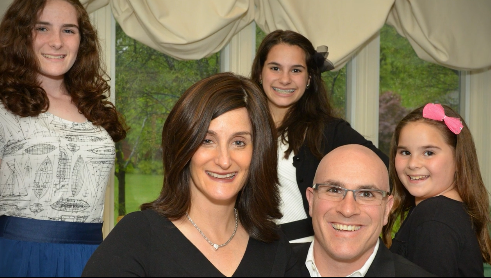David Harris

Cincinnati Young Adults Leading in Legacy Giving: Guest Post by Reagan Kuhn
Is legacy giving through wills or retirement plans limited to baby boomers and seniors? Not in Cincinnati: our young adults are taking the lead over most communities nationwide in legacy planning before their 40s.
Cincinnati is one of over 40 communities participating in a national program to build needed endowments for Jewish organizations, and has quickly stood out for its successes, particularly among young adults. The Create Your Jewish Legacy (CYJL) program, a community–wide initiative led by the Jewish Federation of Cincinnati, is encouraging community members to consider this type of gift planning.
One of the most surprising results from the program so far has been that one third of those who have made legacy commitments to our local Jewish organizations and congregations are under 45 years old. Typically, 17% of individuals with charitable gifts in their wills are under 45. Although Cincinnati’s program includes commitments made through a number of vehicles, such as life insurance policies and retirement plans, Cincinnati is seeing double that rate.
Team members from participating organizations have been reaching out to community members across a broad spectrum of ages about how legacy gifts provide support to the organizations they love, in perpetuity.
Ronna Schneider, a team leader for the program and a legacy donor herself, explained, “Actually, it’s in some ways easier to make these preparations when you are young. My husband and I set up a life insurance policy at a time when premiums were reasonable. And it feels right. By doing this, we are able to help ensure the future of the organizations that are important to us.”
Ariella Cohen, a member of the CYJL committee who heads outreach to young adults, reflected, “When you start talking legacy giving, there are all types of reactions, including fear or thoughts about how complicated the process is. What I want to do, is explain how easy it is, and why this is important for the future of our community.”
Cohen is organizing events to spread awareness among her peers about legacy giving. “We are fortunate in Cincinnati to have a strong, supportive, and vibrant Jewish community. Our generation needs to step up to ensure the great programs and institutions of today will last for future generations,” said Cohen.
For many making legacy commitments, the process is as simple as adding a name to an online form. More and more donors, particularly young adults, are designating organizations and congregations as beneficiaries of their retirement fund or insurance policy.
With these types of commitments, donors keep their money throughout their lives, and their beneficiaries—nonprofits and relatives alike—share what’s left. It makes legacy giving simple, flexible, and accessible to those of all ages and levels of resources.
This type of giving is necessary within the somewhat grim financial climate for nonprofits nation–wide. As annual giving declines, it has become vital that organizations create endowment funds to maintain operations. That means keeping the community alive and thriving: vibrant congregations, strong day schools, services for the elderly and others in need, Holocaust education, Jewish cemeteries, and much more.
Many of the individuals who have made legacy commitments as part of Create Your Jewish Legacy have included organizations currently outside the program—the emphasis has been on giving to the community and all the organizations important to them.
“I’ve been involved in Cincinnati’s community for 35 years—but the single most important thing I’ve done to help is to become chair of this new program. I set up my own legacy commitment and it was one of the most meaningful investments of my life,” said Bill Freedman, nationally renowned tax attorney and chair of the Create Your Jewish Legacy program. “And it is truly inspiring that so many of our young adults are taking this step too.”

